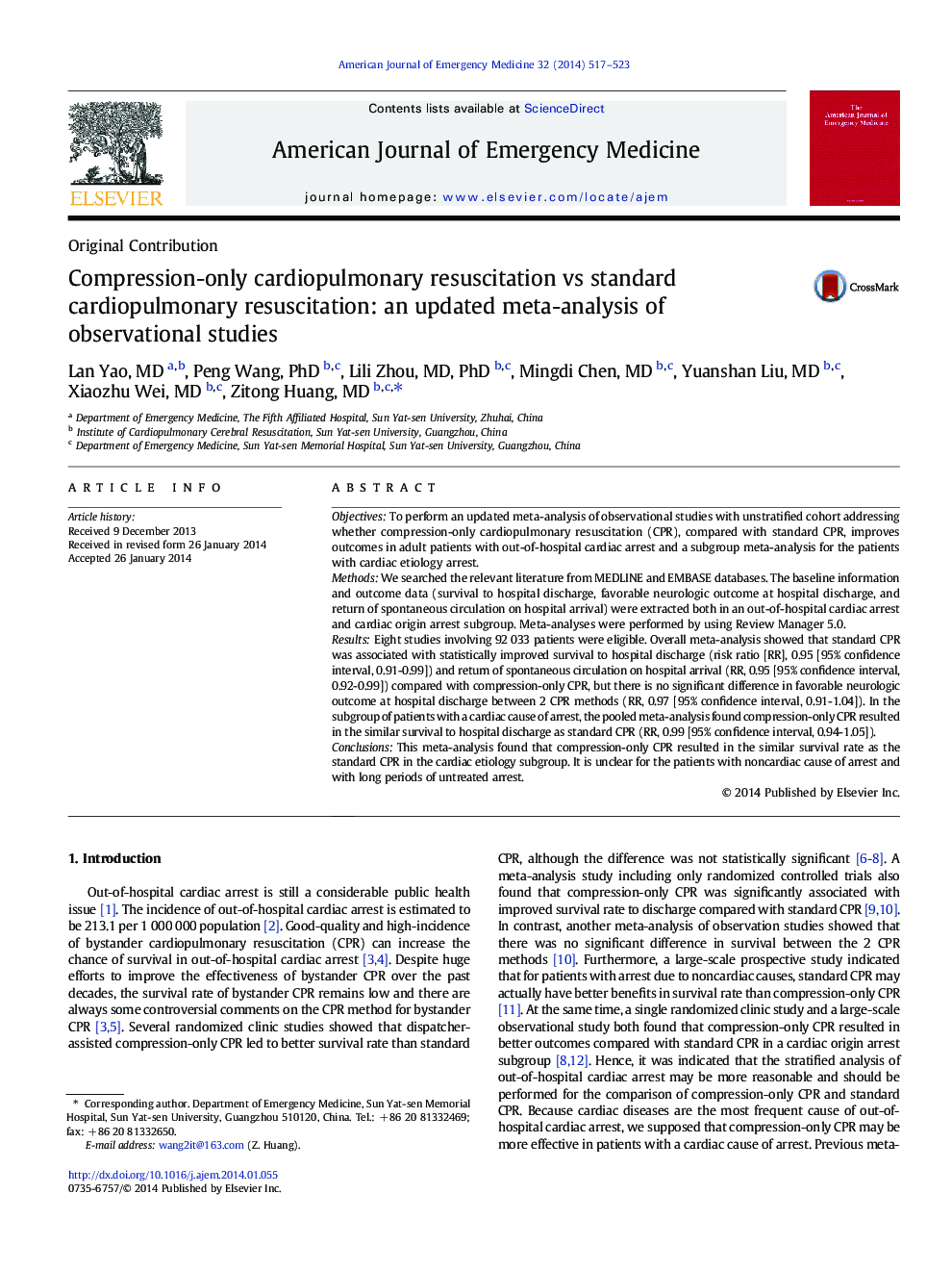| Article ID | Journal | Published Year | Pages | File Type |
|---|---|---|---|---|
| 3225039 | The American Journal of Emergency Medicine | 2014 | 7 Pages |
ObjectivesTo perform an updated meta-analysis of observational studies with unstratified cohort addressing whether compression-only cardiopulmonary resuscitation (CPR), compared with standard CPR, improves outcomes in adult patients with out-of-hospital cardiac arrest and a subgroup meta-analysis for the patients with cardiac etiology arrest.MethodsWe searched the relevant literature from MEDLINE and EMBASE databases. The baseline information and outcome data (survival to hospital discharge, favorable neurologic outcome at hospital discharge, and return of spontaneous circulation on hospital arrival) were extracted both in an out-of-hospital cardiac arrest and cardiac origin arrest subgroup. Meta-analyses were performed by using Review Manager 5.0.ResultsEight studies involving 92 033 patients were eligible. Overall meta-analysis showed that standard CPR was associated with statistically improved survival to hospital discharge (risk ratio [RR], 0.95 [95% confidence interval, 0.91-0.99]) and return of spontaneous circulation on hospital arrival (RR, 0.95 [95% confidence interval, 0.92-0.99]) compared with compression-only CPR, but there is no significant difference in favorable neurologic outcome at hospital discharge between 2 CPR methods (RR, 0.97 [95% confidence interval, 0.91-1.04]). In the subgroup of patients with a cardiac cause of arrest, the pooled meta-analysis found compression-only CPR resulted in the similar survival to hospital discharge as standard CPR (RR, 0.99 [95% confidence interval, 0.94-1.05]).ConclusionsThis meta-analysis found that compression-only CPR resulted in the similar survival rate as the standard CPR in the cardiac etiology subgroup. It is unclear for the patients with noncardiac cause of arrest and with long periods of untreated arrest.
